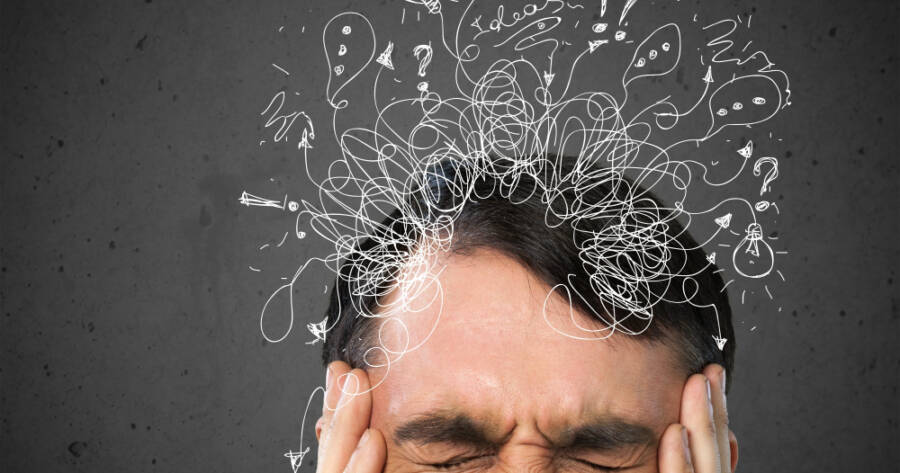Attention Deficit Hyperactivity Disorder (ADHD) is often perceived as a childhood condition. However, it persists into adulthood for many individuals. Fortunately, you can learn everything you need to know about adult ADHD with a search online.
In adults, ADHD presents a unique set of challenges and symptoms. Recognizing these signs is the first step toward effective management and treatment. This understanding can significantly improve the quality of life for those affected.
What Is Adult ADHD?
Adult ADHD is a condition characterized by patterns of inattention, hyperactivity, and impulsivity that are more severe, frequent, or debilitating than typically observed in individuals at a similar level of development. While it often begins in childhood, ADHD can continue into adulthood and its symptoms can manifest differently than in children. Understanding and recognizing these symptoms is crucial for effective management and treatment, enabling those affected to lead more structured and successful lives.
Recognizing the Signs of ADHD in Adults
One of the key signs of ADHD in adults is a persistent pattern of inattention. This can manifest as difficulty in maintaining focus, particularly in tasks requiring sustained mental effort. Adults with ADHD often struggle with organization, regularly misplacing items or missing appointments. Another hallmark symptom is hyperactivity, which in adults may appear as restlessness or an inability to relax. It’s important to note that symptoms can vary greatly among individuals.
Impulsivity and Emotional Regulation in Adult ADHD
Impulsivity is another major sign of ADHD in adults. This can lead to hasty decisions without considering the consequences, interrupting others in conversation, or impatience in waiting for one’s turn. Emotional dysregulation is also common, characterized by sudden mood swings and difficulty managing stress. Adults with ADHD may experience intense emotions more frequently and have a harder time recovering from them.
The Impact of ADHD on Daily Life
The signs of ADHD in adults can significantly affect daily life. Challenges in time management and prioritization can lead to underperformance at work or school. Social relationships may also be strained due to misunderstandings or perceived inattentiveness. Additionally, adults with ADHD might struggle with low self-esteem, often feeling overwhelmed or frustrated with their symptoms.
Diagnosis and Treatment of Adult ADHD
Diagnosis of ADHD in adults can be complex. It requires a comprehensive evaluation by a healthcare professional, often involving psychological assessments and a review of personal history. Treatment typically includes a combination of medication and psychotherapy. Behavioral strategies are also important, focusing on improving organizational skills, time management, and stress reduction.
Coping Strategies and Support Systems
Developing coping strategies is crucial for managing the signs of ADHD in adults. This may involve creating structured routines, using tools like planners or reminders, and setting realistic goals. Support systems, including family, friends, and support groups, play a vital role. They offer understanding, encouragement, and accountability, which are essential for successful management of ADHD symptoms.
Navigating Relationships With Adult ADHD
Adult ADHD can significantly impact interpersonal relationships. Misunderstandings often arise from symptoms like forgetfulness or inattention during conversations. It’s crucial for adults with ADHD to communicate openly about their condition with partners and friends. This fosters understanding and patience. Additionally, relationship counseling may be beneficial, providing strategies to manage ADHD-related challenges in relationships.
Workplace Challenges and Accommodations
Adults with ADHD may face unique challenges in the workplace. Difficulty with concentration, time management, and organization can affect job performance. It’s important for individuals to seek workplace accommodations when necessary, such as a quiet workspace or flexible deadlines. Employers and colleagues should be made aware of the condition in a professional manner, ensuring a supportive work environment.
Lifestyle Adjustments for Better ADHD Management
Lifestyle changes can play a significant role in managing ADHD symptoms. Regular exercise, a balanced diet, and adequate sleep can greatly improve focus and emotional regulation. Mindfulness practices, such as meditation or yoga, can also be beneficial in managing stress and improving concentration. Consistent routines and a structured environment can help in reducing the chaos often experienced by adults with ADHD.
The Role of Technology in Managing Adult ADHD
Technology offers various tools that can assist adults with ADHD in managing their symptoms. There are numerous apps designed for time management, reminders, and organization. These digital tools can be particularly helpful in keeping track of appointments, deadlines, and important tasks. Additionally, online support communities provide a platform for sharing experiences and coping strategies, offering a sense of belonging and understanding.
Final Thoughts
ADHD in adults is a complex condition, but understanding its signs and symptoms is a critical first step. Through proper diagnosis and a combination of treatment strategies, individuals can effectively manage their symptoms. With the right support and coping mechanisms, adults with ADHD can lead fulfilling and productive lives, overcoming the challenges posed by this condition.
